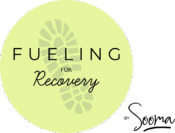Eating disorders are complex medical and psychological conditions that affect individuals across all demographics. According to the National Eating Disorder Association, 30 million Americans will experience an eating disorder in their lifetime. Effective treatment requires more than one provider—it requires a coordinated team approach.

Why Collaboration Matters in Eating Disorder Recovery
Recovery from an eating disorder involves addressing both the psychological and physiological damage caused by the disorder. A collaborative approach—especially between a psychotherapist and a registered dietitian—is essential for holistic healing. These two professionals work together to support both emotional recovery and nutritional rehabilitation, often forming the foundation of a multidisciplinary team.
The Mental and Physical Toll of Eating Disorders
Eating disorders severely impact both mind and body. Psychologically, they can lead to obsessive thoughts about food and weight, emotional dysregulation, anxiety, depression, social isolation, and cognitive impairments. Physically, the consequences range from malnutrition and electrolyte imbalances to organ damage, cardiovascular issues, and compromised immunity. Recovery requires addressing these intertwined symptoms simultaneously.
Core Members of an Eating Disorder Treatment Team
While an ideal treatment team might include a psychotherapist, dietitian, psychiatrist, and primary care physician—alongside adjunct providers like an eating disorder coach, a group clinician, or occupational therapists—not all clients can access such extensive care. However, two roles remain non-negotiable in most cases:
- The Psychotherapist brings expertise in identifying the emotional and psychological symptoms and root causes of disordered eating behaviors. They support individuals in addressing trauma, anxiety, distorted body image beliefs, and internalized messages developed over time. Using evidence-based approaches such as Cognitive Behavioral Therapy (CBT), Dialectical Behavioral Therapy (DBT), and trauma-informed treatments, they help uncover and work through the underlying emotional drivers of disordered eating.
- The Registered Dietitian helps rebuild a relationship with food that is based on the individual’s values and physical needs. They offer medical nutrition therapy, meal planning, emotional support when it comes to changing the relationship with food and education on how the body heals from long-term restriction or binge-purge cycles. They help clients rebuild a positive, sustainable relationship with food and their bodies.

Why “Eating Disorder-Informed” Matters
General clinical training is not enough. Psychotherapists and dietitians must be eating disorder-informed—with specialized education in the nuances of disordered eating, including how it manifests psychologically and physically. These providers understand that hunger cues may be impaired, body image is often distorted, and food-related anxiety is real.
Additionally, eating disorder-informed care often includes a Health at Every Size® (HAES®) approach, which promotes body neutrality, health-promoting behaviors, and rejects weight-centric care. This model is essential in dismantling diet culture’s harmful impact and fostering lasting recovery.
Risks of Non-Specialized Providers
Working with providers who aren’t trained in eating disorders can inadvertently worsen the condition. Well-meaning but uninformed advice—such as encouraging intuitive eating without acknowledging disrupted hunger cues or failing to address the impacts of malnutrition on cognitions and mood—can undermine progress. Only specialists can tailor care to these unique and sensitive challenges.
Communication Is Key
True collaborative care means ongoing, clear communication. The psychotherapist and dietitian should regularly discuss progress, setbacks, and shared goals—such as increasing energy intake, managing exercise behaviors, or reintroducing fear foods. This alignment ensures the treatment plan is coherent, comprehensive, and responsive.
Joint sessions or regular case consultations further enhance integration, particularly in high-acuity or complex cases. These collaborative efforts help prevent gaps in care and ensure clients receive consistent, supportive guidance, and enable timely adjustments to the treatment plan when needed.
Finding the Right Providers in Virginia
When looking for eating disorder treatment in Virginia, prioritize professionals who are:
Eating disorder-informed
- Has specialty training and work experience in eating disorder treatment, incorporating evidence-based approaches, and understand the physical, mental and emotional impacts an eating disorder can have on an individual.
Aligned with HAES® principles
- Understand that each person’s body is unique and that health is not determined by size, shape, or weight. They recognize the harms of diet culture and weight stigma in our society and help clients embrace size inclusivity and diversity. They support clients in reclaiming their relationship with their body, food, and movement without the pressure of meeting the distorted societal beauty standards.
Collaborative and team-oriented
- Actively communicate and collaborate with other professionals involved in your eating disorder treatment.
Trauma-informed and inclusive
- Provide compassionate care for an individual with eating disorders of all backgrounds, identities, and body sizes. They understand the protective nature of eating disorder behaviors and accompany you in being curious about these parts rather than judgmental and shameful.
Using evidence-based treatment approaches
- This includes therapies like Cognitive Behavioral Therapy (CBT), Family-Based Therapy (FBT), Acceptance and Commitment Therapy (ACT), Dialectical Behavior Therapy (DBT) and Internal Family Systems (IFS) alongside other modalities shown to be effective in treating eating disorders.

At Coastal Collaborative Care and Fueling for Recovery, we specialize in this integrative, person-centered approach. If you or a loved one are navigating the challenges of an eating disorder, reach out. We’re here to provide compassionate, coordinated care in Virginia and other states—because recovery isn’t a solo journey. It truly takes a village.
By: Annyck Besso, MSc. RD, Founder of Fueling for Recovery
Gabrielle Katz, LCSW, CEDS-C Owner of Coastal Collaborative Care
Coastal Collaborative Contact info:
admin@coastalcollaborativecare.com
(571) 249-5332








































